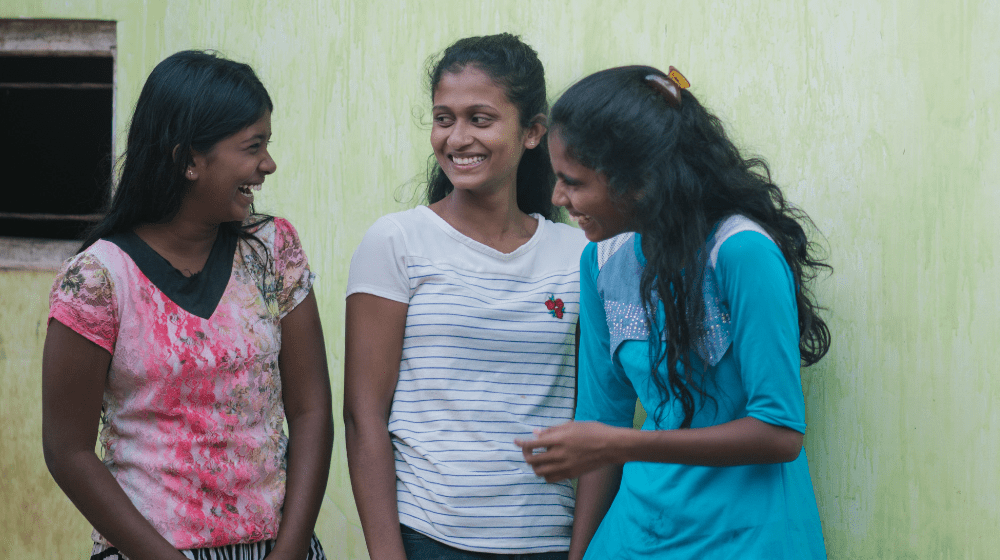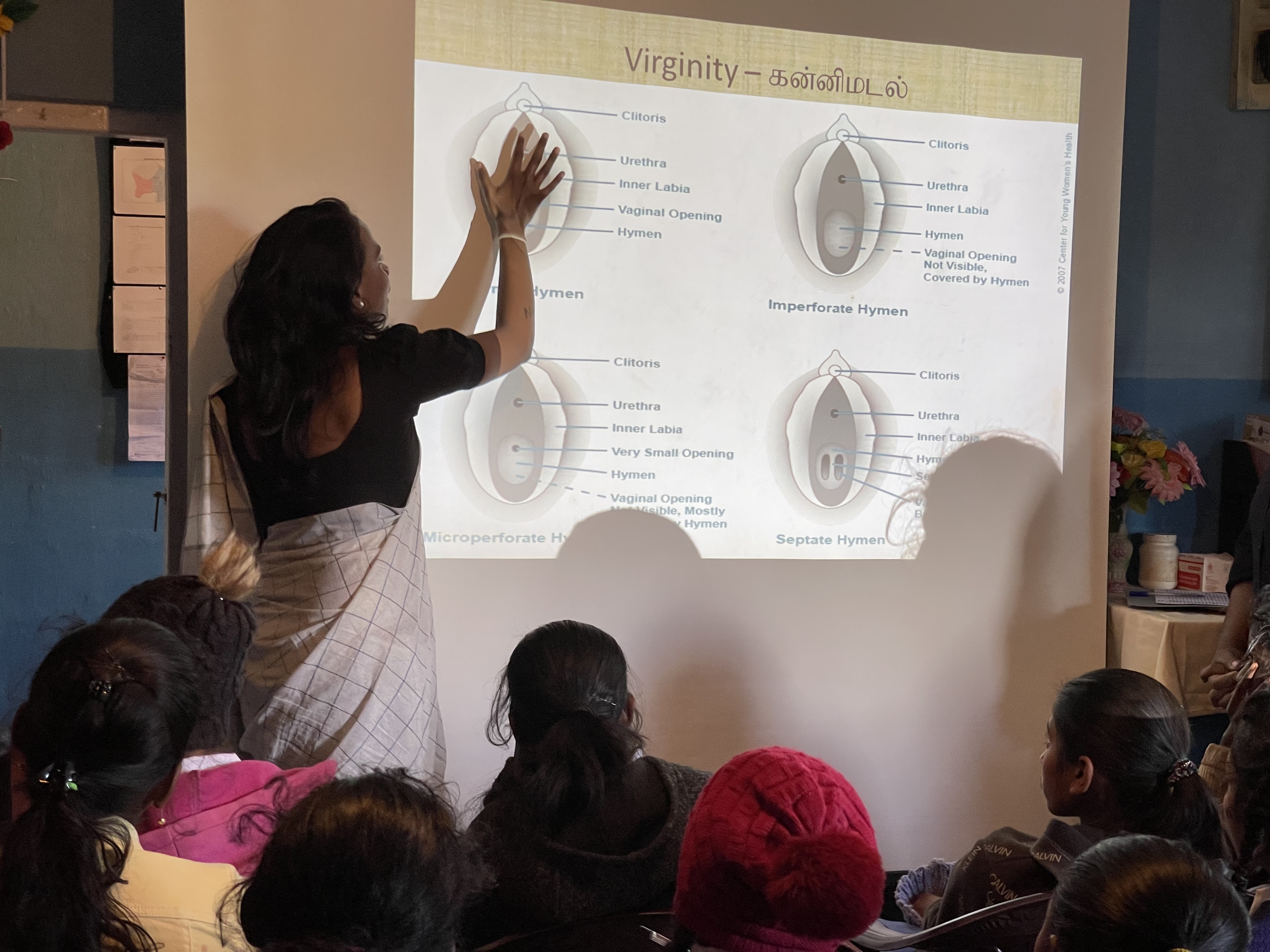In many parts of the world, menstruation is still considered a taboo subject, cloaked in silence. Oftentimes, this silence is perpetuated by deeply ingrained cultural and religious societal norms that perceive menstruation as shameful or impure. This stigma associated with menstruation hinders open conversations and blocks access to information, leaving many individuals in the dark without knowledge and essential resources. In 2024, the world marks International Menstrual Hygiene Day under the theme, Period Friendly World. So, are we ready to openly talk about periods?
Open discussions about menstruation are significantly important for raising awareness, promoting menstrual hygiene, and challenging harmful myths and stigma.
Myths such as menstruating women being ‘impure’ due to ‘bad or dirty blood’ and unable to participate in daily activities continue to persist.
In Sri Lanka, similar myths hinder progress towards gender equality. These misconceptions affect women's self-esteem, thereby affecting their overall mental and physical well-being. Therefore, inclusive education, support and awareness are crucial in debunking these myths.
Menstrual health interventions dispel myths, promote healthy practices, enhance access to period products, build confidence, protect dignity, and strengthen sexual and reproductive health. Improving menstrual health services is crucial for achieving Sustainable Development Goal 3 (SDG 3), which focuses on good health and well-being for all ages. Additionally, ensuring menstrual health supports Sustainable Development Goal 5 (SDG 5), which emphasizes gender equality and empowering women and girls.
Period poverty, which limits access to period products, hygiene facilities, and education, highlights gender discrimination and inequality.
In 2018, it was revealed that 66 percent of girls in Sri Lanka are unaware of menstruation until its first occurrence
(Menstrual Hygiene Management in Schools in South Asia, UNICEF, WaterAID).
According to a National Study on CSE in Sri Lanka in 2016, supported by UNFPA, it was found that 85 percent of girls believed that one cannot get pregnant before her first menstruation, while 75 percent of girls were under the impression that menstrual blood was ‘polluted’. These findings reiterate the need to harness the power of Comprehensive Sexuality Education (CSE) to effectively dispel myths and misconceptions surrounding menstrual health. It also goes beyond information, helping young people to explore and nurture positive values regarding their sexual and reproductive health. CSE includes discussions about family life, relationships, culture and gender roles, and also addresses human rights, gender equality, and threats such as discrimination and sexual abuse.
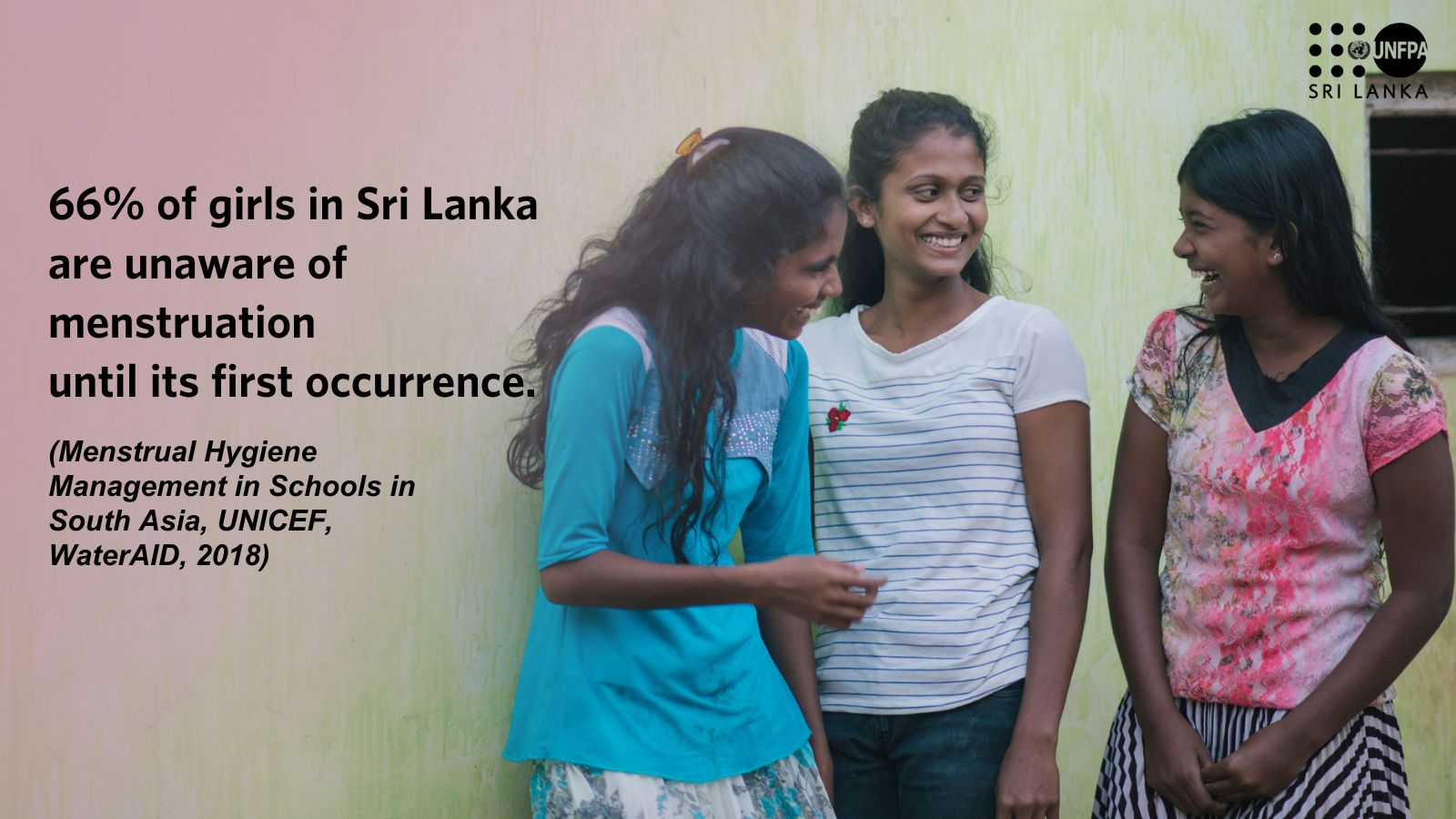 |
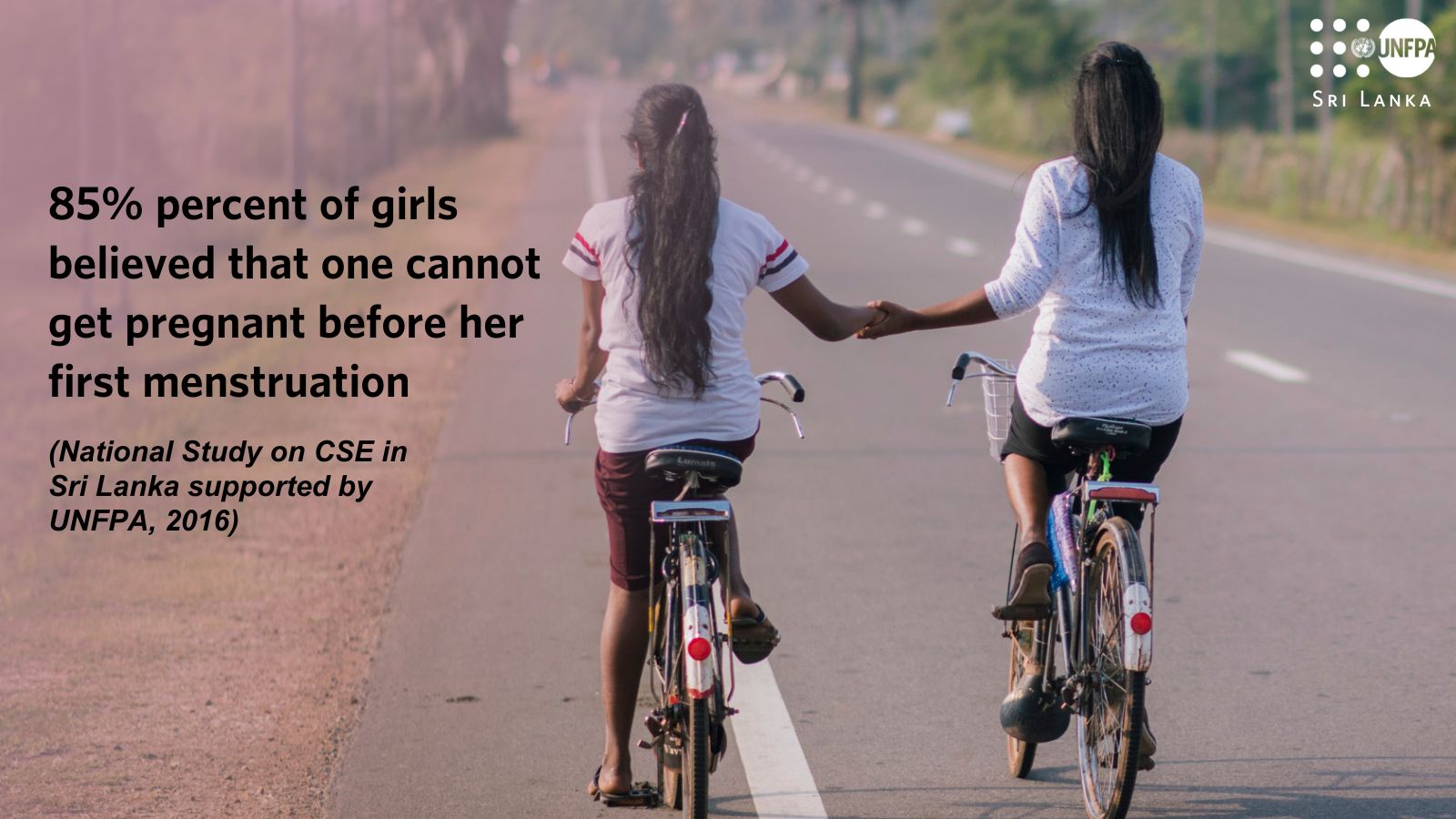 |
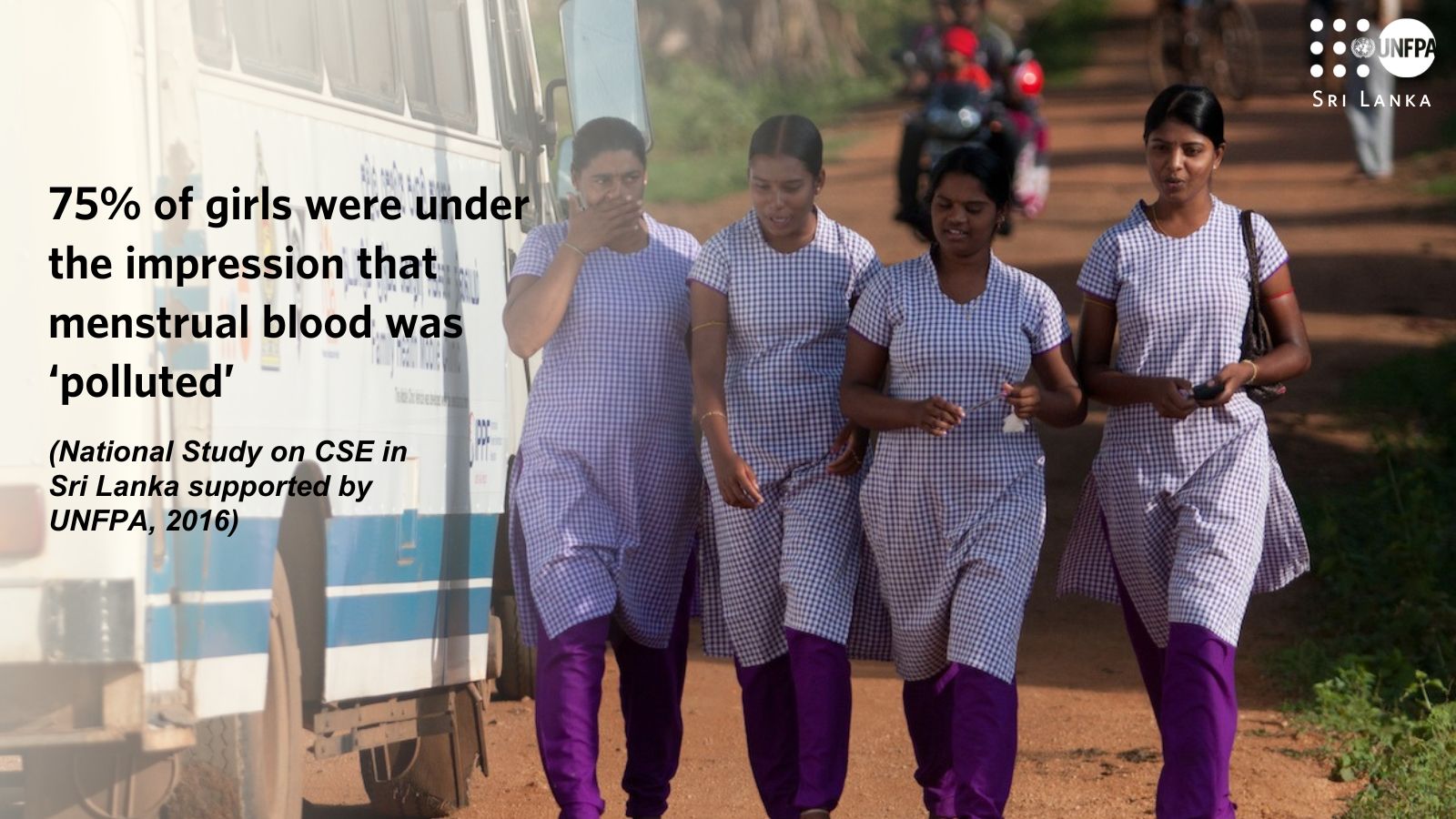 |
Women and girls with disabilities, as well as transgender and non-binary individuals with disabilities face unique challenges regarding menstrual health. They often encounter physical barriers that prevent them from accessing clean and private facilities. Additionally, there is a lack of tailored education and resources to meet their specific needs. However, these challenges faced by persons with disabilities in terms of menstrual hygiene management are often overlooked in society. It is imperative that we adopt an inclusive approach to menstrual health that considers the diverse needs of all individuals.
UNFPA Sri Lanka together with Australia’s Department of Foreign Affairs and Trade (DFAT), have been distributing dignity kits and adolescent kits among at-risk communities since the onset of the multi-dimensional crisis in Sri Lanka, following the global COVID-19 pandemic. Amidst the alarming rate of period poverty post economic crisis, more and more menstruating people are facing difficulties in purchasing sanitary napkins. According to the Department of Census and Statistics (DCS), period poverty was recorded at 41 percent in 2018 (Household Income and Expenditure Survey, DCS, 2019).
Today, the price of a sanitary napkin has risen by a whopping 92 percent in comparison to 2021
(Policy Brief on Tax Free Periods, Advocata Institute, 2024).
Against such a backdrop, these dignity and adolescent kits provide them with the most essential supplies to manage menstruation, including soap, underwear, and sanitary napkins. The kits are carefully designed to meet the specific needs of all menstruating individuals including those with disabilities, enabling them to manage their menstrual health effectively.
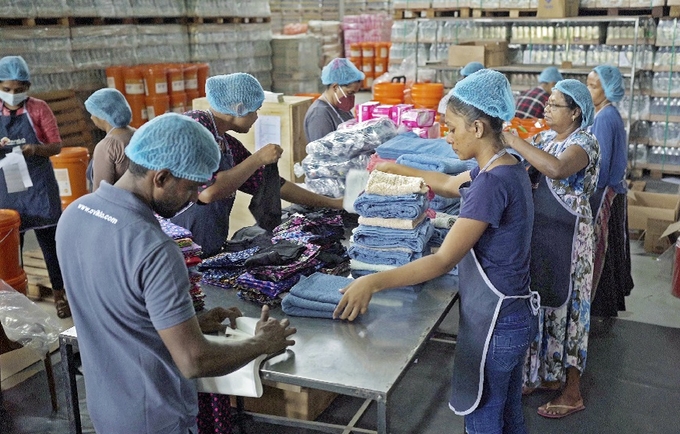 |
The strategic distribution of 3,000 dignity kits and over 2,000 adolescent kits has significantly supported women and girls facing challenges in accessing essential menstrual and sanitary supplies, during the multidimensional crisis in Sri Lanka. This joint intervention by UNFPA Sri Lanka and Australia’s DFAT played a pivotal role in helping menstruating individuals maintain their hygiene and dignity during the crisis.
In another joint effort, sensitization sessions were conducted for close to 10,000 young people, including adolescent girls on menstrual health. These sessions were delivered during 130 clinics on menstrual health catering to over 4,500 people across the country, 27 youth camps attended by over 2500 individuals and multiple awareness sessions for adolescent girls in rural areas and the estate sector.
|
|
These initiatives have ensured that people in the most at-risk and remote communities were provided with the means to manage their menstrual hygiene, even during a crisis period, whilst also empowering them with knowledge.
On this International Menstrual Health Day, let us reaffirm our commitment to breaking the silence and eliminating the myths and misconceptions surrounding menstruation. By promoting inclusive policies, educational reforms and healthy practices, we can ensure that all individuals, including those with disabilities, have the information and resources to manage their menstrual health with dignity and confidence.
It’s time to end the stigma and support menstrual health for everyone.
Joint Op-Ed by High Commissioner of Australia to Sri Lanka, His Excellency Paul Stephens and UNFPA Sri Lanka Representative, Kunle Adeniyi
Read the newspaper version: Sunday Island (2nd June 2024)

